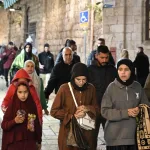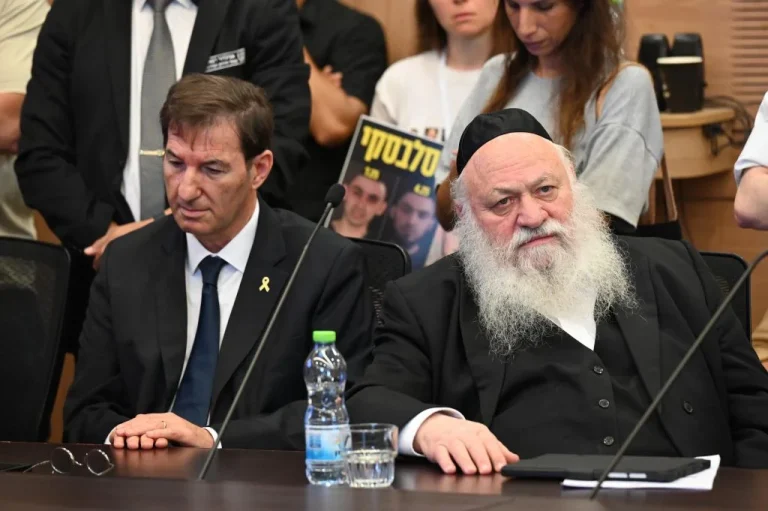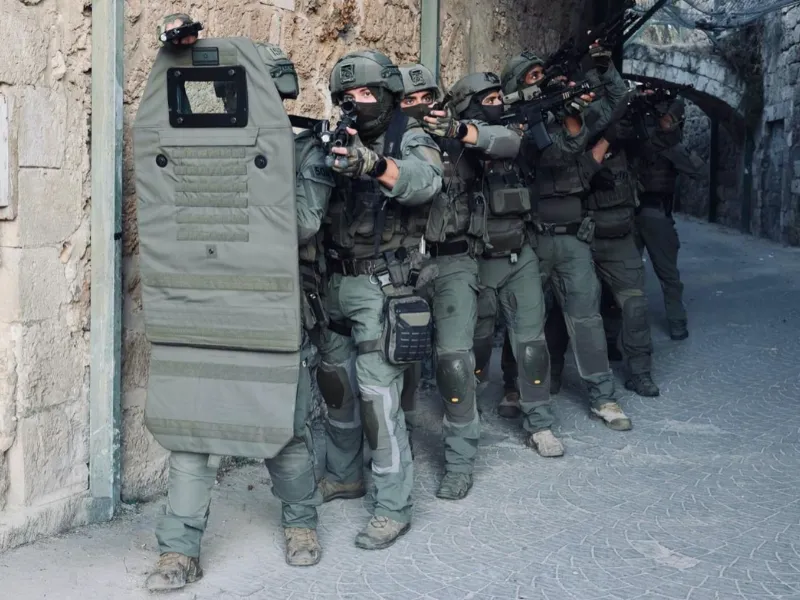Jerusalem, 4 August, 2025 (TPS-IL) — In the latest twist to Israel’s contentious issue of conscripting yeshiva students, the Knesset House Committee voted to replace the chairman of the powerful Foreign Affairs and Defense Committee, which is overseeing legislation that has put Prime Minister Benjamin Netanyahu on a collision course with his Haredi Orthodox political allies and the High Court of Justice.
The House committee approved replacing Likud MK Yuli Edelstein with fellow Likud MK Boaz Bismuth, a Netanyahu ally by a vote of 10-4. The vote paves the way for the Foreign Affairs and Defense Committee to approve Bismuth’s appointment on Monday night, which is widely viewed as a formality.
“I received a lot of requests from MKs, reservists and journalists who asked to see the wording of the law,” Edelstein. “I explained that since there is no majority, there is nothing to legislate and therefore nothing to show. I knew that when I published the outline, it would be criticized. I fought for a real conscription law – but the Haredi leadership simply does not want conscription. Changing the identity of the chairman of the Foreign Affairs and Defense Committee will not change anything. This dismissal will lead to chaos in the IDF [Israel Defense Forces]. Today’s vote is the final nail in the coffin of the draft law.”
Meanwhile, the Knesset plenum, which is on summer recess, is due to hold an emergency meeting on the yeshiva conscription issue. The special session was convened after the opposition gathered the required 25 signatures last week to force a debate on “advancing the evasion law during wartime, bringing back the hostages, and pursuing an immediate deal to end the fighting in Gaza.”
The military began making plans to draft yeshiva students after Israel’s High Court of Justice ruled in 2024 that exemptions for the Haredi community were illegal. The United Torah Judaism and Shas parties have been pushing for legislation that enshrines the exemptions, but Edelstein’s hard-line stance on sanctions against draft refusers prompted the Haredi parties to quit the government
Before the vote to oust him, Edelstein sent members of his committee a copy of his long-awaited conscription bill — a draft he had previously kept tightly under wraps. The proposal outlined stiff penalties, including loss of tax benefits, restrictions on travel, and bans on obtaining a driver’s license. Central to the proposal is a controversial biometric tracking mechanism requiring yeshiva students to verify their attendance by fingerprinting themselves three times daily.
Edelstein’s legislation also empowers the Defense Minister to strike off yeshivas that repeatedly fail compliance checks.
The draft law sets initial annual recruitment targets starting with 4,800 Haredi soldiers, 35% of whom must serve in combat roles. These targets rise annually, reaching 7,920 by year four. From that point, the combat requirement increases to 40%. Institutions that fall short of these quotas would face funding cuts. The draft also includes long-term goals: 75% recruitment compliance in 2025 and 2026, 80% in 2027 and 2028, and full compliance by 2029. Any yeshiva falling below these benchmarks would lose financial support for students granted deferments.
To qualify for a deferment, students must study at least 45 hours per week in an authorized Torah yeshiva. Those in vocational training can subtract those hours from the requirement. Daily biometric attendance checks would be required to maintain the deferral.
Edelstein’s draft of the legislation further stipulated that all conscription candidates must first be drafted and assigned to a unit before applying for an exemption. Sanctions for failure to comply would remain in place until the age of 30. The clause raising the first-year quota from 4,800 to 5,700 was a key sticking point for Haredi lawmakers.
Haredi men in Israel are generally exempt from mandatory military service if they study full-time in religious seminaries, known as yeshivot. The issue has long divided Israeli society and remains politically sensitive, especially during wartime. Shas and UTJ insist on preserving these exemptions as a matter of religious principle and community identity.
However, public opposition has grown. After 22 months of war, many Israelis view the policy as unequal.
Military service is compulsory for all Israeli citizens. However, Israel’s first Prime Minister, David Ben-Gurion, and the country’s leading rabbis agreed to a status quo that deferred military service for Haredi men studying in yeshivot, or religious institutions. At the time, no more than several hundred men were studying in yeshivot.
The Orthodox community has grown significantly since Israel’s founding. In January 2023, the Central Bureau of Statistics reported that Haredim are Israel’s fastest-growing community and projected it would constitute 16% of the population by the end of the decade. According to the Israel Democracy Institute, the number of yeshiva students exceeded 138,000 in 2021.
































